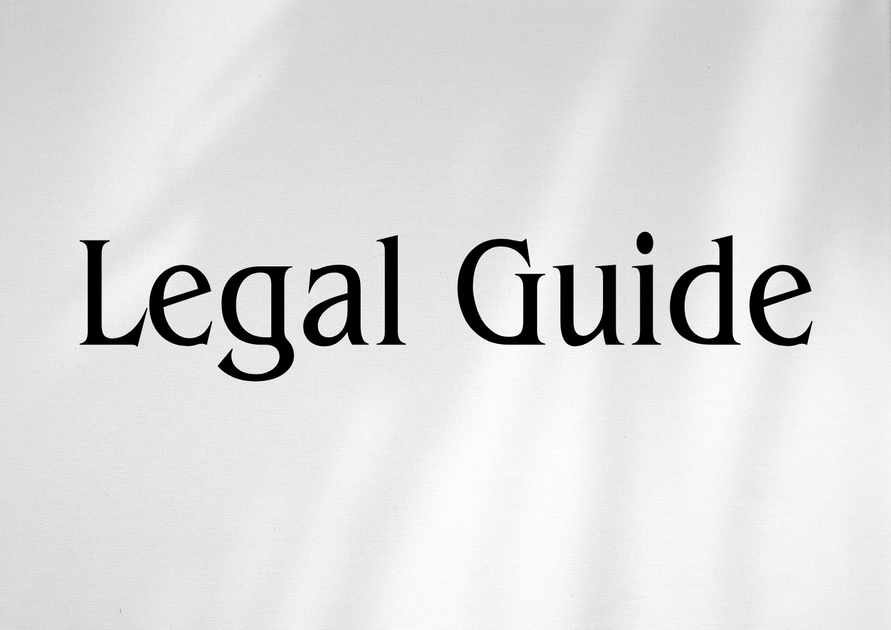Introduction: The Strategic Dynamics of International Arbitration in the UAE
In today’s interconnected business landscape, cross-border commercial relations are central to the UAE’s position as a global commercial hub. Companies—both multinational and local—are increasingly exposed to disputes that transcend jurisdictions, evolving swiftly alongside rapid legal developments within the country. In response, international arbitration has emerged as an indispensable mechanism for resolving such disputes efficiently, fairly, and enforceably. Its significance has grown further with the UAE’s execution of modern arbitration legislation and active participation in global conventions, positioning the Emirates as a preferred seat for international dispute resolution. Recent amendments, such as Federal Decree-Law No. 6 of 2018 on Arbitration and updated enforcement protocols, signal the UAE judiciary’s sophisticated approach to supporting the arbitral process and upholding its integrity.
This article offers strategic, consultancy-level analysis of international arbitration and cross-border dispute management for readers in the UAE. We examine not only the relevant laws, but also actionable practices and creative solutions for complying with the rapidly evolving regulatory landscape. Whether you are a business executive, legal advisor, or HR manager, this comprehensive guide provides the insights required to navigate the complex matrix of cross-border disputes in line with the latest UAE law 2025 updates, ensuring enforceability and minimizing risk.
Table of Contents
- UAE International Arbitration Framework: Key Laws and Treaties
- Practical Provisions and Arbitration Processes in the UAE
- Comparing Old and New Arbitration Laws: Key Developments
- Navigating Jurisdictional Challenges in Cross-Border Disputes
- Enforcement of Arbitral Awards in the UAE
- Case Studies: Impact on Businesses
- Compliance Strategies and Risk Mitigation
- Future Trends and Best Practices for UAE Businesses
- Conclusion: Shaping the Future of UAE Arbitration and Cross-Border Dispute Resolution
UAE International Arbitration Framework: Key Laws and Treaties
Federal Decree-Law No. 6 of 2018 on Arbitration
The foundation of arbitration law in the UAE is Federal Decree-Law No. 6 of 2018 on Arbitration (the “Arbitration Law”), modeled substantially after the UNCITRAL Model Law, ensuring compatibility with international best practices. This law overhauled the previous system under the UAE Civil Procedure Code, clarifying key aspects such as the validity of arbitration clauses, appointment and challenge of arbitrators, and interim measures. As per Article 2 of the Arbitration Law, its provisions apply to arbitrations seated in the UAE, or where parties agree that the law applies.
International Treaties and the UAE’s Global Arbitration Standing
The UAE is party to several key international conventions, most notably:
- New York Convention (1958): UAE’s accession in 2006 allows for the recognition and enforcement of foreign arbitral awards across signatory countries.
- GCC Convention (1996): Enhanced cooperation among Gulf Cooperation Council states for mutual recognition and enforcement of arbitral awards and court judgments.
Leading Arbitration Centres in the UAE
- Dubai International Arbitration Centre (DIAC): Revised rules as of 2022 bring DIAC in line with global standards.
- Abu Dhabi Global Market Arbitration Centre (ADGMAC): Operates under the common law framework, further strengthening the UAE as an arbitration seat.
- DIFC-LCIA Arbitration Centre: Although undergoing reforms, its legacy continues to influence procedures and enforceability in Dubai’s international business district.
Practical Provisions and Arbitration Processes in the UAE
Arbitration Agreements Under UAE Law
Per Article 7 of the Arbitration Law, the arbitration agreement must be in writing and can be incorporated by reference. The agreement is binding and irrevocable unless parties agree otherwise in writing. Under UAE law, care must be taken when drafting such clauses to ensure their enforceability, particularly regarding the seat of arbitration and the procedural rules.
Key Procedural Elements
- Appointment and Challenge of Arbitrators: Parties are free to agree on the appointment process. In the absence of agreement, the supervising arbitral institution or the court can appoint, per Article 11.
- Interim Measures: Article 21 empowers arbitral tribunals and UAE courts to grant interim measures to preserve assets, evidence, or maintain the status quo.
- Procedural Flexibility: Parties may freely determine the rules applicable to their proceedings, subject to basic requirements of fairness and impartiality.
Practical Guidance for UAE Entities
- Draft precise arbitration clauses identifying the seat, governing law, and applicable rules to avoid protracted preliminary disputes.
- Ensure that representatives with proper power of attorney sign arbitration agreements to avoid later challenges.
- Consider the use of expedited rules for lower-value disputes to streamline proceedings and minimize costs.
Comparing Old and New Arbitration Laws: Key Developments
The transition from the old arbitration framework under the Civil Procedure Code to the dedicated Arbitration Law of 2018 has resolved prior ambiguities and harmonized UAE arbitration with international standards.
| Aspect | Civil Procedure Code (Pre-2018) | Federal Decree-Law No. 6/2018 |
|---|---|---|
| Arbitrator Appointments | Court-heavy, unclear timelines | Clear process, party autonomy prioritized |
| Enforceability of Arbitration Agreements | Frequent procedural challenges | Greater certainty, written form clarified |
| Powers to Grant Interim Relief | Restricted to courts | Tribunals and courts empowered |
| Annulment of Awards | Often protracted due to broad grounds | Limited, clear grounds for challenge |
| International Compatibility | Limited | UNCITRAL Model Law-based |
Navigating Jurisdictional Challenges in Cross-Border Disputes
Key Issues and Jurisdictional Risks
Cross-border disputes in the UAE often involve complex layers of jurisdiction due to the coexistence of onshore (federal) and offshore (free zones such as DIFC and ADGM) legal systems. Key challenges include:
- Conflicting Jurisdiction Clauses: Parties may inadvertently assign disputes to incompatible forums.
- Authority of Signatories: Validity of arbitration clauses can be challenged if signatories lack express authority under UAE law.
- Serial Proceedings: Attempts by one party to simultaneously pursue or re-litigate related matters in UAE courts and arbitral tribunals.
Strategic Solutions
- Coordinate carefully with international counsel when drafting multi-jurisdictional contracts to align dispute resolution clauses with your business model and regional exposure.
- Regularly audit contract templates to ensure the correct legal form and execution by authorized representatives.
- Include exclusive jurisdiction provisions, referencing the explicit seat and institutional rules governing arbitration.
Enforcement of Arbitral Awards in the UAE
Domestic and Foreign Award Enforcement
The enforcement of arbitral awards—both domestic and foreign—is essential for ensuring the finality of arbitration. Under Articles 52–55 of the Arbitration Law, an arbitral award is enforceable via the UAE courts within 60 days unless an application for annulment is filed. Enforcement has been further streamlined by Cabinet Resolution No. 57 of 2018 (as amended), which clarifies the court’s role and timelines.
Recognition Under the New York Convention
The UAE courts are generally robust in enforcing foreign arbitral awards, particularly after the Court of Cassation’s decision in Case No. 1324/2018 confirmed the supremacy of the New York Convention over conflicting domestic laws.
| Step | Description | Relevant Provision |
|---|---|---|
| Application to Competent Court | Award holder submits application for recognition/enforcement | Art. 55 Arbitration Law |
| Challenge/Annulment Window | 60-day window for opposing party to file for annulment | Art. 54 |
| Execution Proceedings | If no annulment, award is executed like a UAE judgment | Art. 55 |
| Appeal | Limited appeal grounds, ensuring finality | Art. 53(1) |
Practicalities and Tips for Enforceability
- Ensure that awards bear all required formalities (signed, reasoned, delivered to all parties).
- If enforcement is likely to be challenged, act quickly and compile all supporting documentation (original award, arbitration agreement, translation where applicable).
- For foreign awards, check that the seat of arbitration is a New York Convention signatory for maximum clarity and enforceability.
Case Studies: Impact on Businesses
Case Study 1: Multinational Construction Dispute
Background: A UAE-based developer entered into an EPC contract with a European consortium. The parties selected DIAC rules and Dubai as the seat. Following project delays, disputes arose over liquidated damages and quality of work. The contract’s arbitration clause was challenged on the grounds of improper signatory authority.
Analysis: Applying recent precedents, the Dubai Courts confirmed the arbitration agreement since the signatory was listed as an authorized individual in the company’s commercial license—demonstrating the importance of corporate documentation and clear contractual drafting.
Case Study 2: Enforcement of a Foreign Arbitral Award
Background: An international supplier won an ICC arbitration seated in Paris against a mainland UAE entity. The supplier sought enforcement through the Dubai Courts under the New York Convention.
Outcome: The Dubai Court of Cassation recognized the award, rejecting the UAE defendant’s public policy objections, and underscored the primacy of the New York Convention for award enforcement. This illustrates the UAE’s pro-enforcement judicial stance.
Compliance Strategies and Risk Mitigation
Key Compliance Risks in International Arbitration
- Improperly Drafted Arbitration Clauses: Ambiguities or inconsistencies may delay or derail proceedings.
- Unauthorized Signatories: Agreements not signed by valid company representatives risk nullification.
- Non-compliance with UAE Regulations: Failing to meet documentary and procedural requirements can impede enforcement.
- Ignoring Local Laws in Free Zones: DIFC/ADGM have distinct rules; overlap may result in conflicting judgments.
Consultancy Checklist: Minimising Arbitration Risks
| Risk Factor | Compliance Recommendation |
|---|---|
| Arbitration Clause Validity | Review and standardize templates; specify seat, rules, and language |
| Signatory Authority | Require powers of attorney/corporate resolutions for signatories |
| Document Retention | Digitally archive all contracts, correspondence, and award-related documents |
| Governing Law Consistency | Align governing law and jurisdiction clauses across all documents |
| Training and Awareness | Conduct periodic legal training for contract managers and senior executives |
Penalties for Non-Compliance
Penalties for failing to comply can include:
- Loss of right to enforce arbitral award in the UAE (Art. 53, Arbitration Law)
- Protracted litigation and financial loss
- Potential exposure to parallel proceedings and double recovery risks
Future Trends and Best Practices for UAE Businesses
Modernization and Digitization of Arbitration
The UAE is rapidly adopting technological solutions, including virtual hearings and digital submissions—a trend accelerated by the COVID-19 pandemic and now enshrined in institutional rules (DIAC, ADGMAC). Businesses should:
- Embrace e-disclosure and online submissions to expedite dispute resolution.
- Incorporate pandemic-proof dispute resolution clauses to allow for remote hearings.
Growing Role of Free Zones in Arbitration
DIFC and ADGM are gaining traction as arbitral seats, offering recognition and enforcement of awards independent from mainland courts. This trend benefits companies seeking a common law approach or greater procedural autonomy. Consider the following:
- Selecting DIFC/ADGM as a ‘neutral’ forum if contracting with foreign distributors or JV partners.
- Ensuring seamless enforceability via the shared enforcement protocols between offshore and onshore courts.
Best Practices for Ensuring Compliance and Efficiency
- Regularly update standard contract templates in line with the latest UAE law 2025 updates and international best practices.
- Engage experienced legal advisors during contract negotiation phases to pre-emptively address possible disputes.
- Implement in-house arbitration training to raise awareness among management and legal teams.
- Maintain a proactive stance on compliance, particularly as regulations surrounding arbitration, data privacy, and digital evidence evolve.
Conclusion: Shaping the Future of UAE Arbitration and Cross-Border Dispute Resolution
International arbitration under the UAE’s advanced legal framework offers a robust, enforceable, and efficient mechanism for resolving cross-border business disputes. Recent reforms, such as Federal Decree-Law No. 6 of 2018, underline the UAE’s commitment to international standards, further cemented by the proactive approach of its courts in enforcing arbitral awards under the New York Convention.
For business leaders, legal advisors, and HR managers, awareness and strategic use of these mechanisms are no longer optional. As the UAE continues to modernize its dispute resolution landscape—embracing digitization and new institutional rules—organizations must adopt diligent compliance practices, build well-drafted arbitration clauses, and ensure representatives have unambiguous authority. By doing so, companies enhance contractual certainty, enforceability, and risk resilience in a competitive global market.
Looking ahead, we anticipate greater harmonization between onshore and free zone systems, increased adoption of technology in evidence and hearings, and a continued trend toward pro-enforcement judicial philosophy. Staying informed and proactively managing dispute resolution risks will provide UAE businesses with a strategic edge—ensuring legal compliance, commercial certainty, and operational efficiency in an ever-evolving landscape.
Suggested Visuals
- Penalty Comparison Table: Contrasting pre- and post-2018 penalty/exposure for non-compliance with arbitration requirements
- Compliance Checklist Infographic: Quick visual for contract managers/executives
- Process Flow Diagram: Step-by-step chart showing enforcement process for domestic and foreign arbitral awards in UAE courts



